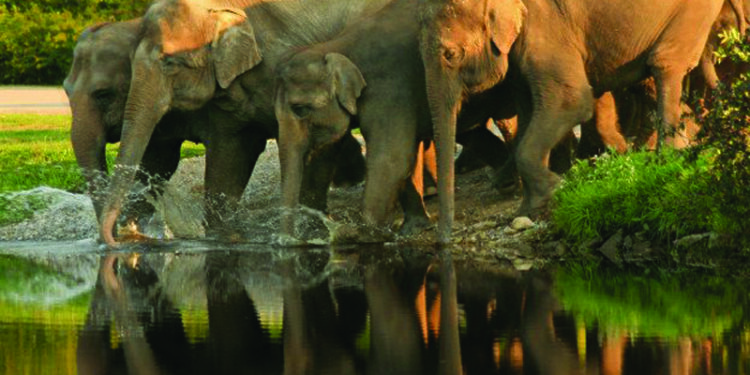NE NEWS SERVICE
CHENNAI, SEP 7
The Tamil Nadu government should defer reopening of wildlife parks, zoos and sanctuaries across the state taking advantage of the COVID-19 pandemic and allow natural rejuvenation of biodiversity, experts suggest.
The COVID-19 crisis could be converted into an opportunity not only to carry out environmental reforms to benefit the people and the state but also strengthen the environment and make the economy more sustainable in the coming years, they said.
The state government has permitted numerous activities in Tamil Nadu under ”Unlock 4;, to encourage economic development. On August 30, Chief Minister Edappadi K Palaniswami while announcing the extension of the lockdown till this month-end, pronounced further relaxations.
He however, said schools, colleges, cinema halls, swimming pools, amusement parks, beaches, zoological parks, museums and tourist spots would not be re-opened until further orders.
“The closure of tourism activities due to COVID-19 crisis, especially in reserve forests and protected areas i.e. national parks and sanctuaries, in Tamil Nadu, should be extended at least till the end of this year so that the natural rejuvenation of forests and biodiversity can continue to prevail for some more time,” Dr P Durairasu, Principal Chief Conservator of Forests (PCCF), Head of Forest Force, Tamil Nadu, said.
Prof. L Venkatchalam, an environmental economics expert from the Madras Institute of Development Studies here, said the government could mull introducing long-term measures like “Green GDP,” considered as an indicator of “economic welfare.”
“The currently measured state GDP cannot be treated as a proper indicator of economic welfare as the GDP measurement does not make necessary adjustments for changes in the value of the environment,” he claimed.
Elaborating, he said the total turnover of the knitwear industry in Tiruppur in the state was Rs 50,000 crore in 2018-2019, which is included as ”income” in SGDP estimation.
However, the un-quantified environmental damage costs inflicted by the industrial activities on society, in terms of health cost, cost on agriculture and allied activities, and cost of biodiversity loss, as well as environmental defensive expenditure (EDE), in terms of hospitalisation cost or additional fertilisers to improve soil quality, will amount to several thousand crores of rupees which are not quantified and netted out from the SGDP, he said.
As the current SGDP does not indicate if the economy is moving on an environmentally sustainable path or reflects true economic welfare of the society, periodical estimate of economic value of non-market ecosystem services, environmental damage costs, and EDE, should be resorted to.
Accordingly, necessary adjustments should be made in the SGDP so that appropriate environmental policy can be initiated in the relevant sector and the SGDP becomes an indicator of both sustainable income as well as true economic welfare of the society, he suggested.
Indicating the direction of environmental reforms in Tamil Nadu post COVID-19, Durairasu and Venkatachalam argue that the priority wetlands in all districts should be notified before the end of this year so that focused attention could be given to protect the precious wetlands in the state.
Wildlife activists, however, disagree on a blanket ban on the tourist spots in the reserve forest areas which are in the control of the Forest department.
“I will support the move if it will rejuvenate the natural resources. But no human will transmit COVID-19 to animals. Also, we should see how far human interference will affect nature,” wildlife activist T Murugavel said.
For instance, river Ganga got cleaned during the lockdown and in the 2015 December deluge, the Adyar and Coovum rivers got cleaned by themselves, he said.
“Most of the problems are caused by human interference. We should learn how not to pollute the water resources or environment,” he added.
Disagreeing with the move to restrict human activities in the fringe areas as this would affect tribals, especially their livelihood, another wildlife activist K Mohan Raj argued that the five months of lockdown from March-end has only restricted the human and industrial activities.
“But such a short period will only spur short-term gain. We need to come up with long-term strategy for spectacular growth,” he said.










